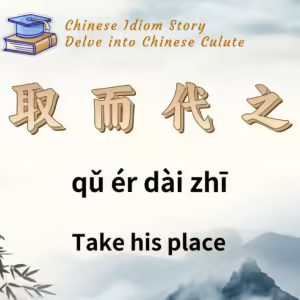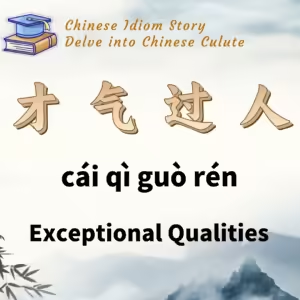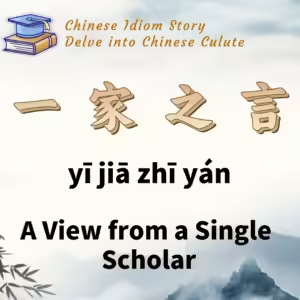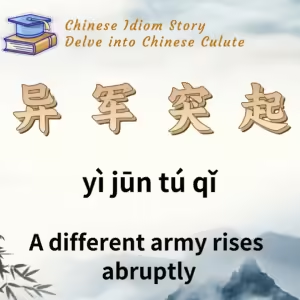
Chinese Idiom: 取而代之 (Qu Er Dai Zhi)
English Translation: Take his place
pīn yīn: qǔ ér dài zhī
Idiom Meaning: This idiom means to seize someone’s position and replace them. “取” means to take or seize, and “代” means to replace.
Historical Source: Shiji · Biography of Xiang Yu (《史记 ·项羽本纪》)
Idiom Story:
Xiang Yu, whose given name was Ji, was born in the late Qin Dynasty in Xiang County (now Suqian, Jiangsu Province). His family had a long history of military leadership, and his grandfather, who served as a general for the state of Chu, was forced to commit suicide when Qin conquered Chu. After his father’s death, Xiang Yu was raised by his uncle, Xiang Liang, who also harbored a deep desire for revenge against the Qin Dynasty, but he patiently waited for the right moment to strike, knowing that Qin was still too powerful.
From a young age, Xiang Yu showed great potential. His uncle tried to teach him to read and write, but Xiang Yu had little interest in academic learning. Xiang Liang then taught him swordsmanship, but Xiang Yu lost interest quickly. When his uncle scolded him for lacking ambition, Xiang Yu confidently replied, “Reading and writing are only useful for remembering names, and swordsmanship is only good for fighting a few people. I want to learn the skills to defeat thousands.” Recognizing his lofty ambitions, Xiang Liang began to teach him military strategy, which excited Xiang Yu.
Later, Xiang Liang had a dispute with a local official and was forced to flee after killing his accuser. He and Xiang Yu escaped to the Guanzhong region to evade capture.
In 210 BC, Qin Shi Huang, the first emperor of China, embarked on a tour of southeastern China. Accompanied by his younger son, Hu Hai, and several officials, he visited places like Hubei and Zhejiang. One of the highlights of the trip was a visit to Mount Kuaiji (modern-day Shaoxing, Zhejiang), where the legendary Yu the Great was said to be buried. Although Qin Shi Huang was known for not believing in deities, he expressed reverence for Yu’s monumental contributions to China’s flood control.
As the emperor’s procession passed through the streets of Wu (modern-day Hangzhou), crowds gathered to witness the spectacle. Xiang Yu and his uncle Xiang Liang were among them. Upon seeing the grandeur of Qin Shi Huang’s entourage, Xiang Yu boldly remarked, “彼可取而代之” (“He can be replaced by me”). In other words, Xiang Yu believed that he could take Qin Shi Huang’s place as emperor.
Startled by the dangerous remark, Xiang Liang quickly covered Xiang Yu’s mouth and warned him not to speak so recklessly, as such words could lead to the execution of their entire family.
Despite the rebuke, Xiang Liang began to realize that Xiang Yu was not an ordinary person, and his ambition to become “a man who could defeat thousands” foreshadowed his future rise to power.






